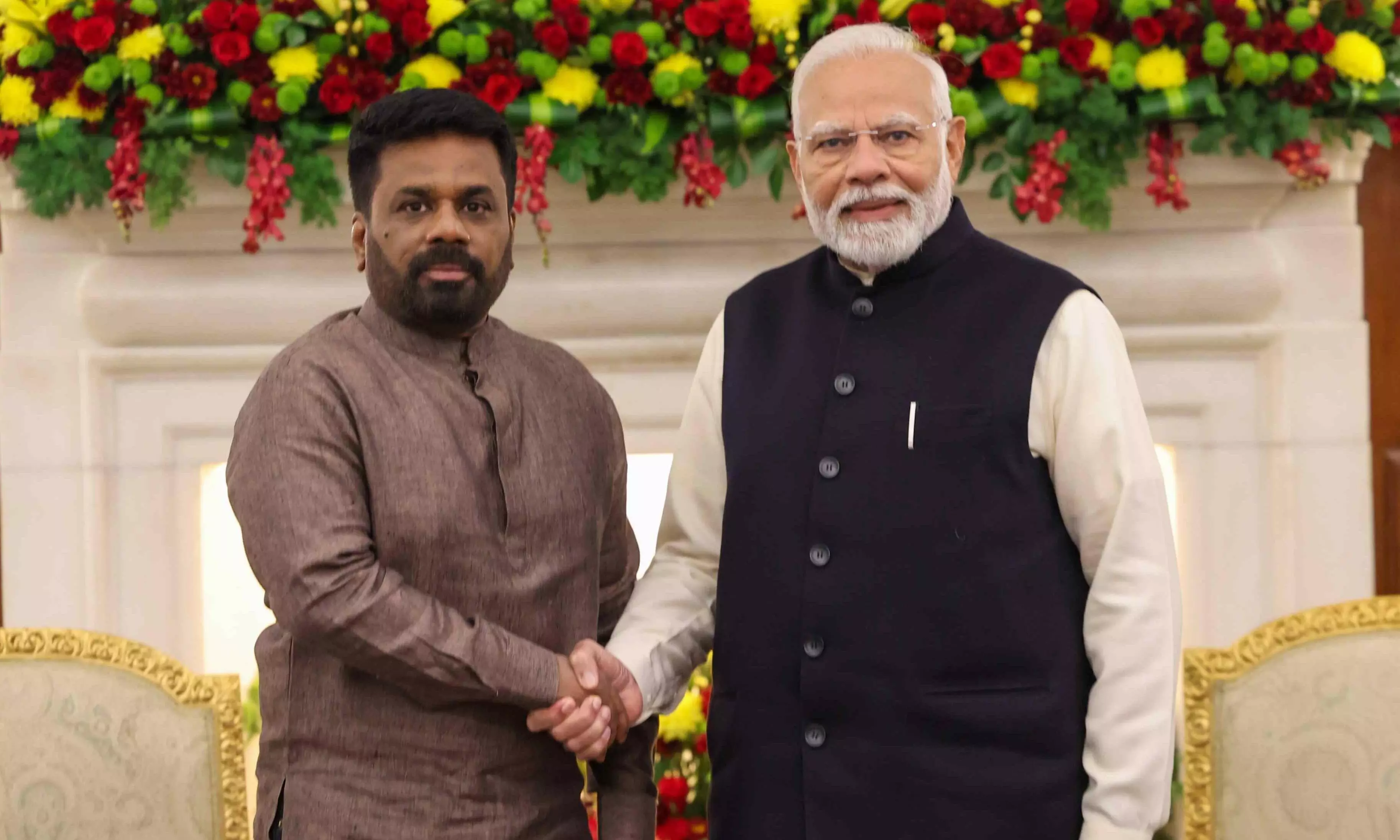
TN fishermen, China could be Modi’s top priorities during Sri Lanka visit
PM’s visit gives hope of resolution to India-Lanka fishing dispute, and comes amid New Delhi's pushback against China’s growing influence in Indian Ocean

As Prime Minister Narendra Modi gears up for his state visit to Sri Lanka on April 4-5, fishermen from Tamil Nadu are watching with renewed hope.
They are currently facing the distressing reality of over 90 detentions in Sri Lankan prisons, and view the renewed discussions as a potential opportunity for resolution.
Also read: Sri Lankan Navy arrests 32 Indian fishermen, seizes 5 fishing boats
Simultaneously, India’s overarching “Neighbourhood First” policy is being tested against the backdrop of China’s growing influence in the region. The outcomes of Modi’s discussions with President Anura Kumara Dissanayake and Prime Minister Harini Amarasuriya could carry significant implications.
Release of Indian fishermen
VP Jesuraj, a representative of the Rameswaram fishing community, who recently engaged with his counterparts in Sri Lanka’s Northern Province, told The Federal, “More than 80 of our fellow fishermen are incarcerated there. We urgently need their release.”
He emphasised the necessity for a sustainable solution, reflecting on the unsuccessful negotiations in 2016 led by Sushma Swaraj. “Nothing materialised then, but with the prime minister’s visit, we are hopeful for a substantial announcement,” he said.
Sri Lanka’s Fisheries Minister Ramalingam Chandrasekar echoed this optimism, indicating that government-level discussions involving fishermen would take place “soon” following a meeting in Jaffna last Sunday.
Past assurances
During President Dissanayake’s December 2024 visit to India, hosted by Prime Minister Modi, the plight of Indian fishermen detained by Sri Lankan authorities was raised. Both leaders acknowledged the need to address this humanitarian concern, with Modi urging a resolution that considers the livelihoods of fishermen from both countries.
Dissanayake assured cooperation, emphasising Sri Lanka’s commitment to not allowing its territory to threaten India’s interests — a statement with broader regional implications. The upcoming visit may build on these talks, potentially announcing measures to mitigate the issue.
Also read: Why hopes for wives of fishermen logged in Pakistan jail are drowning in despondency
Concern over bottom trawling
The primary concern revolves around the practice of bottom trawling: During the discussions on March 26, Sri Lankan fishermen urged their Tamil Nadu counterparts to abandon this method, which is illegal in Sri Lanka due to its detrimental impact on marine ecosystems.
“They requested that we cease deep-sea fishing techniques,” Jesuraj noted, underscoring the divide between Tamil Nadu’s mechanised fishing fleets, driven by declining local fish stocks, and Sri Lanka’s traditional fishers who are protective of their waters.
Previously proposed solutions such as joint patrols, GPS assistance, or deep-sea training may be revisited, yet Sri Lanka’s legal framework, grounded in UNCLOS, remains inflexible.
MEA blames past agreements
External Affairs Minister S Jaishankar informed the Rajya Sabha last Thursday (March 27) that the number of detained individuals stands at 97, including 86 prior to the recent seizure of a trawler, which added 11 more. He noted, “Eighty-three are currently serving sentences, while three are awaiting trial,” attributing the situation to the 1974 Indo-Sri Lanka Maritime Agreement and the 1976 surrender of fishing rights near Katchatheevu.
Also read: Why Indira Gandhi government was right on the Katchatheevu issue
The laws in Sri Lanka, which were amended in 2018 and 2023, now impose significant fines and prison sentences, frequently affecting repeat offenders and boat owners. “We have inherited this issue,” Jaishankar remarked.
Strategic manoeuvre
Beyond the Palk Bay issue, Modi’s visit serves as a test of India’s regional strategy. His visit is being viewed as a reaction to the increasing influence of China in the region.
Retired diplomat Parthasarathy G, in a conversation with The Federal, characterised it as a strategic shift. “Overall, India has maintained a favourable relationship with Sri Lanka, unlike China,” he stated, emphasising the depth of ties compared to Beijing’s debt-driven approach.
“While Sri Lanka is not essential for rapid economic growth, there has yet to be a significant boom—India should extend its support.” Regarding the challenge posed by China’s presence in Hambantota, he advised caution: “We must navigate our strategy wisely to avoid falling into their trap.”

